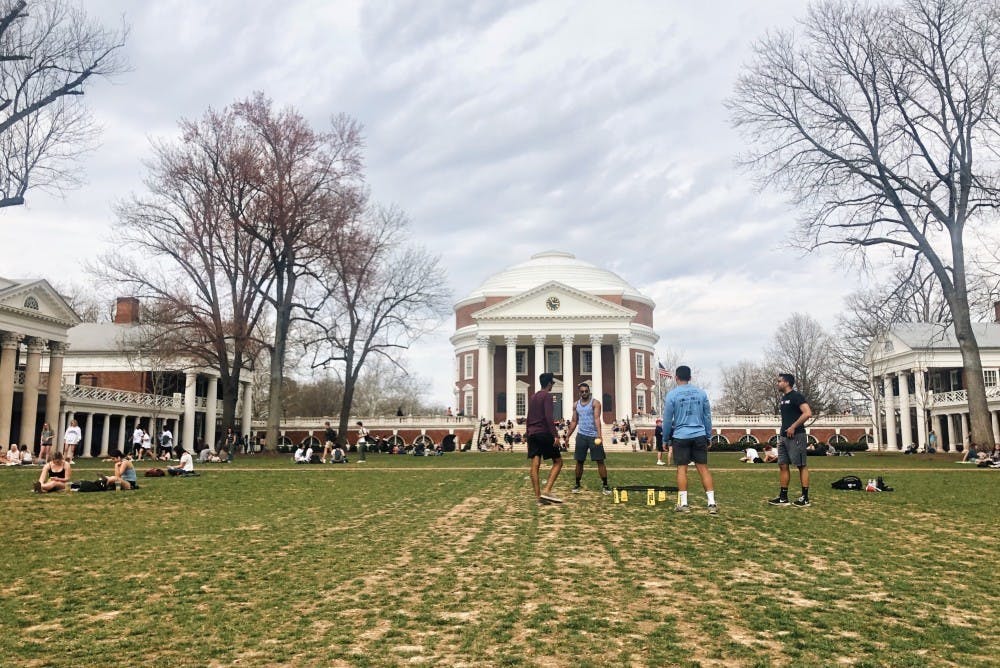Last semester I wrote a column in ardent defense of the College’s New College Curriculum. I argued the criticisms of the New Curriculum “could not be further from the truth” and I highlighted the importance of the curriculum, its faculty, its courses, and its benefits not only to U.Va., but to higher education itself. Additionally, I expressed my belief the New Curriculum frees first-year students’ minds from the confines of traditional secondary education and engages students and faculty in innovative ways.
The College faculty is gearing up for a vote on October 18 on the status of the New College after a three-year opt-in pilot phase. They face a decision with incredible weight — whether to adopt the New Curriculum across the College and catapult the University forward, or instead throw away years of research and development to stick with the status quo. The fate of the University’s academic standing, the future of its students, and the shape of higher education for decades to come all rest on the decision of the College faculty.
The Traditional Curriculum, the “default” of the College, has not been updated since the 1970s. It is absurd that a student then, without the internet and without our contemporary socio-economic and political discourses, followed the same course of study as a student today. The Traditional Curriculum does not prompt students to examine aesthetic integration in society, observe and analyze our classifications of identity, challenge our ethical norms, or transcend the boundaries of knowledge. It simply does not fit in our contemporary time, and has reached a point of hindrance on academic progress. It’s time for a curriculum that better reflects the needs of our University, our community and our contemporary discourse. It’s high time for the Traditional Curriculum to be replaced.
The New College Curriculum is a stunning example of academic progress. Its three requirement areas — the Engagements, Literacies and Disciplines — are each uniquely crafted to ensure students are prepared for higher-level academic studies and well-versed in the issues of our contemporary time. Courses in the Disciplines encompass everything from artistic and philosophical inquiry to historical perspectives to living systems, courses in the Literacies equip students with the tools necessary to adapt to our ever-changing modern world — quantification and data analysis, foreign languages and rhetoric — and courses in the Engagements cover the four fields of liberal arts — aesthetics, difference, ethics and empiricism. Together, the three areas of the New Curriculum build an unparalleled academic experience, incomparable to any peer institution.
New to the Curriculum this fall, the Engagement Labs are a groundbreaking supplement to the main Engagement courses. Not to be confused with a traditional STEM lab, the Engagement Labs group first-year students together and task them with identifying, researching and analyzing an issue pertinent to the University and Charlottesville community. At the end of the academic year, students will be given the opportunity to apply for grant funding for their project. With this funding, students would have an opportunity unlike any other — take their research, further it and turn it into real, tangible change in their community. The Engagement Labs are preparing students to be the civic citizens our society so desperately needs, and increasing the connectivity between U.Va. and Charlottesville.
As an Undergraduate Fellow in the New Curriculum — one of the dozens of second- and third-year undergraduate students who have committed to guiding Lab groups — I’ve seen my students produce incredible work on affordable housing and classism, the culture of perfectionism at the University, and on-Grounds microcosms of global socio-political inequalities and conflicts. The work students are doing in the Engagement Labs is more analogous to work in an upper-level seminar than the type of work required in traditional first-year introductory courses.
Students in the New Curriculum are exposed to the intersections of academic fields and interdisciplinary thought far earlier than students in other curricula or at other universities. That’s why the New Curriculum is so important. It is critical that this exposure is continued and expanded if the University wants to hold its place in the upper echelons of higher education, continue its upward momentum, and close the gap between itself and the Charlottesville community.
The New College Curriculum is the future of higher education in this country. It has shown its capability to produce students who are well-versed in the major issues of our time, where our society stands, and where we need to go. It encourages students to examine the integration of aesthetics into all aspects of our society, and pushes them to the boundaries of our scientific knowledge. It challenges students to analyze our self-classification based on differences in identity, and question why we subscribe — or don’t — to the dominant ethical systems of our community. Perhaps more important than all else, it provides first-year students with an experience unachievable at any other university in the country. A faculty rejection of the New College Curriculum would be a spectacular mistake — a missed opportunity and an academic regression. The College faculty must vote to adopt the New College Curriculum.
Noah Strike is a Viewpoint Writer for The Cavalier Daily. He can be reached at opinion@cavalierdaily.com.







